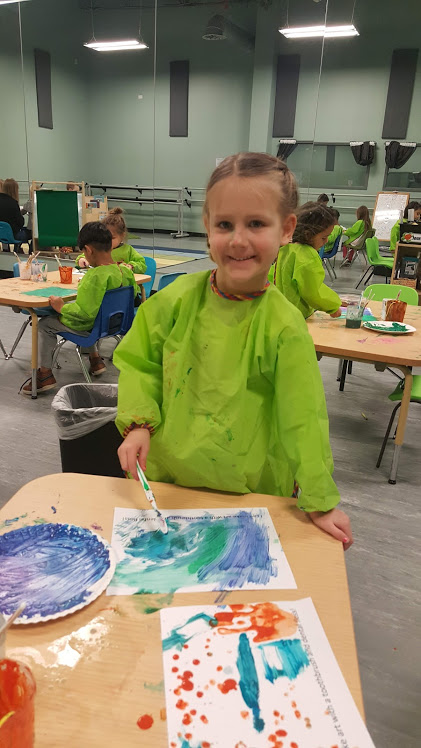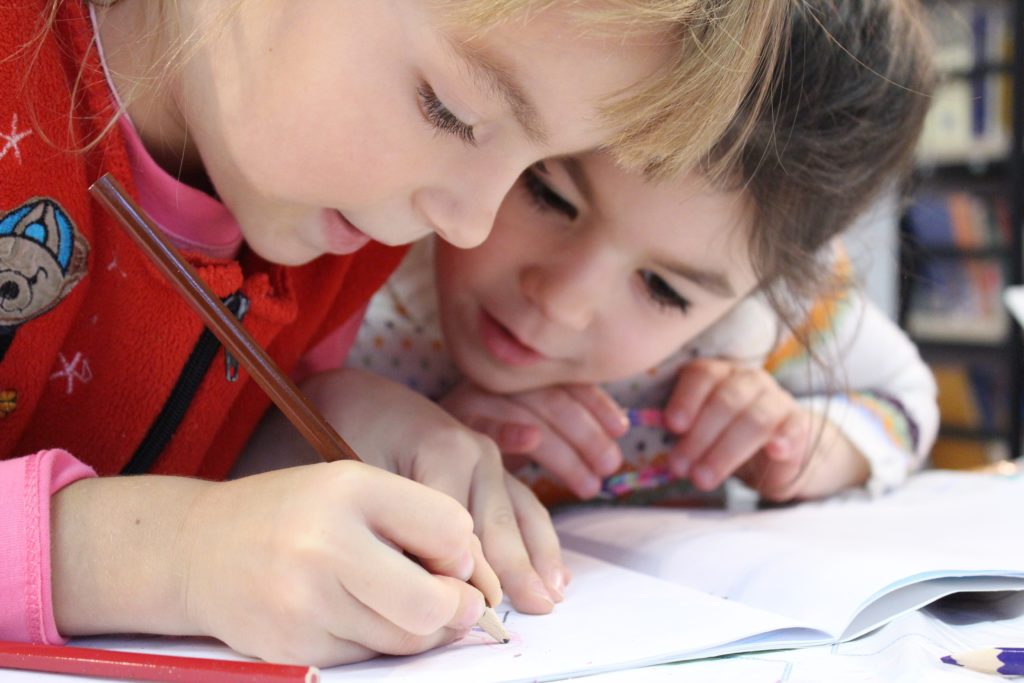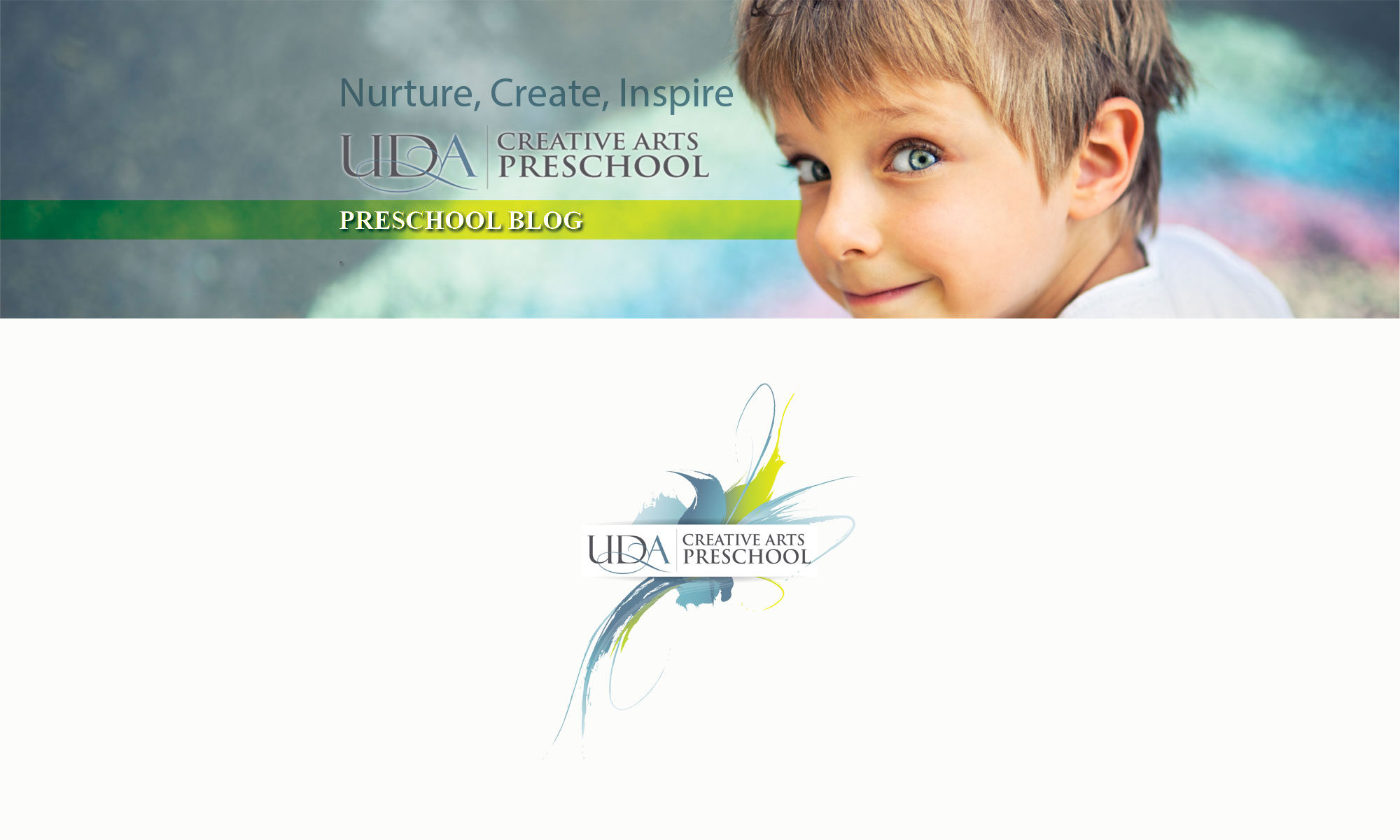Preschoolers, while sweet, are in a developmental stage where they won’t always take other people’s perspectives into account. This isn’t a bad thing; it’s just that young children are still learning about the world and how other people feel. So they don’t always recognize when someone does something kind for them. They’re meant to think of themselves first.
This means that they don’t always recognize when an experience should prompt gratitude.
Expressing gratitude is a skill that develops over time. Your child needs your guidance and good example to develop the skill. In this month of thankfulness, you can help your preschooler develop more gratitude as you gently nurture with positive experiences. Use the following ideas as a springboard.
Use Senses

This video from Sesame Street shows an excellent way to help your child cultivate gratitude through their senses.
Ask your child to look around their environment and find something they see, hear, smell, feel, and even taste that makes them feel happy or grateful. Children learn through their senses; sensory learning supports brain development, builds memory capacity, increases creativity, and strengthens problem-solving abilities.
So when you deliberately tap into your child’s senses while teaching a lesson, their brains will be primed to let that lesson soak in. If you want to help your child develop gratitude, help them use their senses to experience it.
Write Thank-You Notes

Writing thank-you notes is an excellent way to help your child learn and develop the character trait of gratitude. Think about all the steps involved in writing a thank-you note:
- You have to first think of the person you want to thank
- You have to think about why you want to thank them
- You have to consider how to express the reasons you want to thank them
- You have to do something physical (put pen – or crayon! – to paper)
These steps automatically help your child step outside themselves to think about another person. The process of writing the thank-you note is so much more than simply scrawling some letters and pictures; it is literally thinking through the process of how to show gratitude. And that, in turn, helps your child develop more gratitude.
Say It Out Loud
Speaking about gratitude will help your preschooler develop gratitude. This can fall anywhere on the spectrum of simple to formal.
For example, you can simply say out loud, “I’m so grateful for the weather today! It makes me feel happy!”
Or you can have a formal time at the dinner table when everyone expresses gratitude for something or someone each day.
Watch for ways you can say “thank you” more often, and notice how your adorable preschooler will begin to mimic you.
Have a Gratitude Scavenger Hunt
Sesame Street has a great Gratitude Scavenger Hunt you can download.

Each square prompts your child to think of a specific type of thing to be grateful for: something that makes you laugh, a place you love, etc. These prompts expand your child’s mind to understand there are so many things to be thankful for!
Thank Your Child
Look for ways to thank your child. Give them responsibilities and thank them when they follow through. Thank them when they do something that cheers you up, when they are kind to the pet or to a sibling, or when they remind you about something you forgot.
And be sure to thank other people in your life too. Let your preschooler see you thanking your partner, the cashier, your child’s teacher, and more.
Avoid Shaming
Remember: no matter how well you teach and model, your child will still forget to say thank you, refuse to share a toy, or make a disappointed face when they open a present they don’t like.
That’s because your child is still developing gratitude – they still have so much to learn.
It can soothe a parent’s heart to simply know this will happen. Then when it does, you don’t have to feel ashamed, embarrassed, or disappointed in your child. You can remind yourself that your child still needs time to develop gratitude.
So avoid shaming, and instead remind your child of a more appropriate response: “Oh, you forgot to say thank you. That’s okay! We can try again!” Or, “Oh, you were expecting a different present and you are surprised. Let’s take a minute to thank Grandma for thinking of you.”
Every positive experience with gratitude will help your child develop a little bit more of the skill of expressing gratitude over time.
At UDA Creative Arts Preschool, we teach character traits like gratitude, courage, patience, kindness, and more to help children build their developing skills. We also provide a learning environment in which children can learn through their interactions with others. Learn more about our curriculum and play-based learning. Call us at (801) 523-5930 for a tour.
